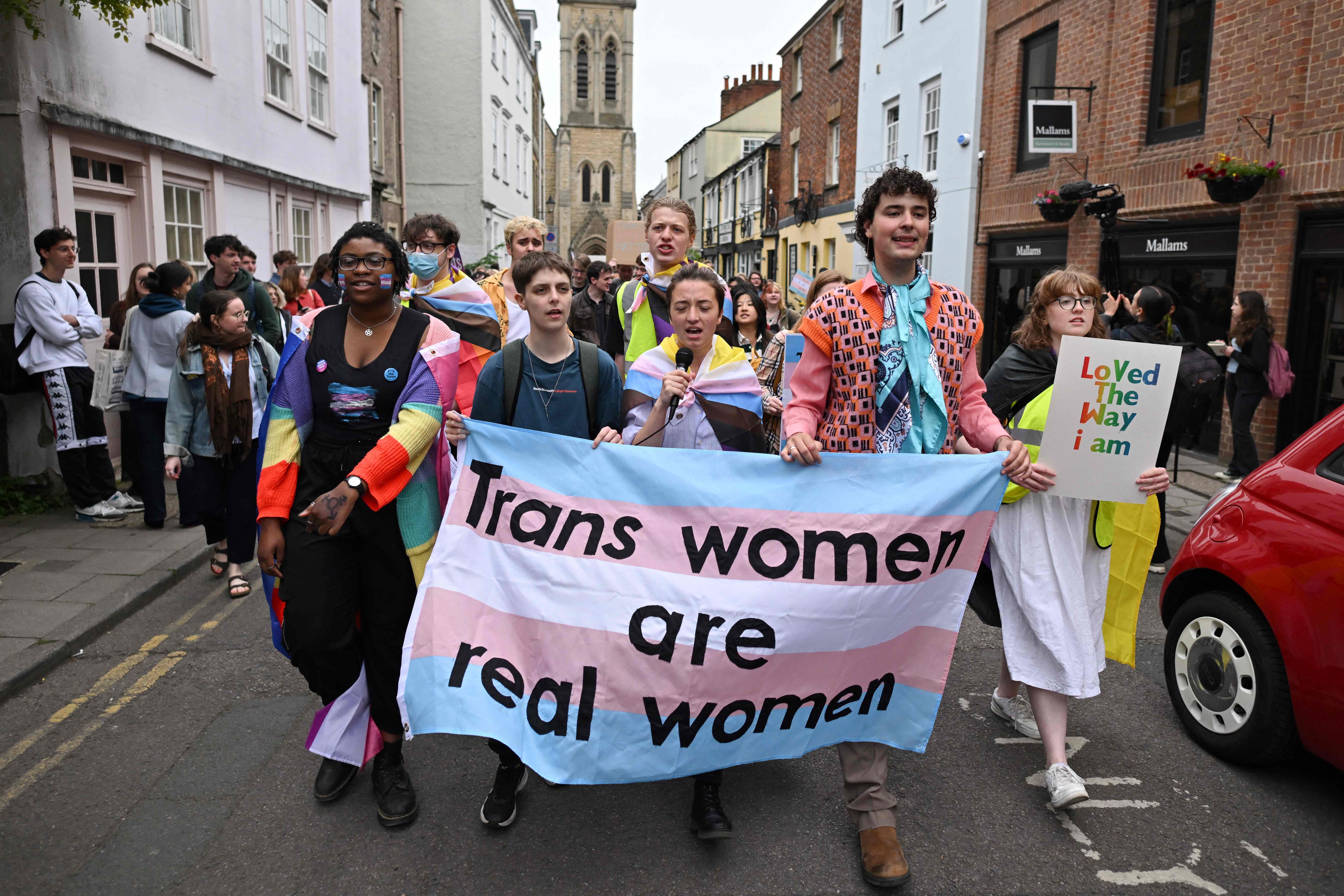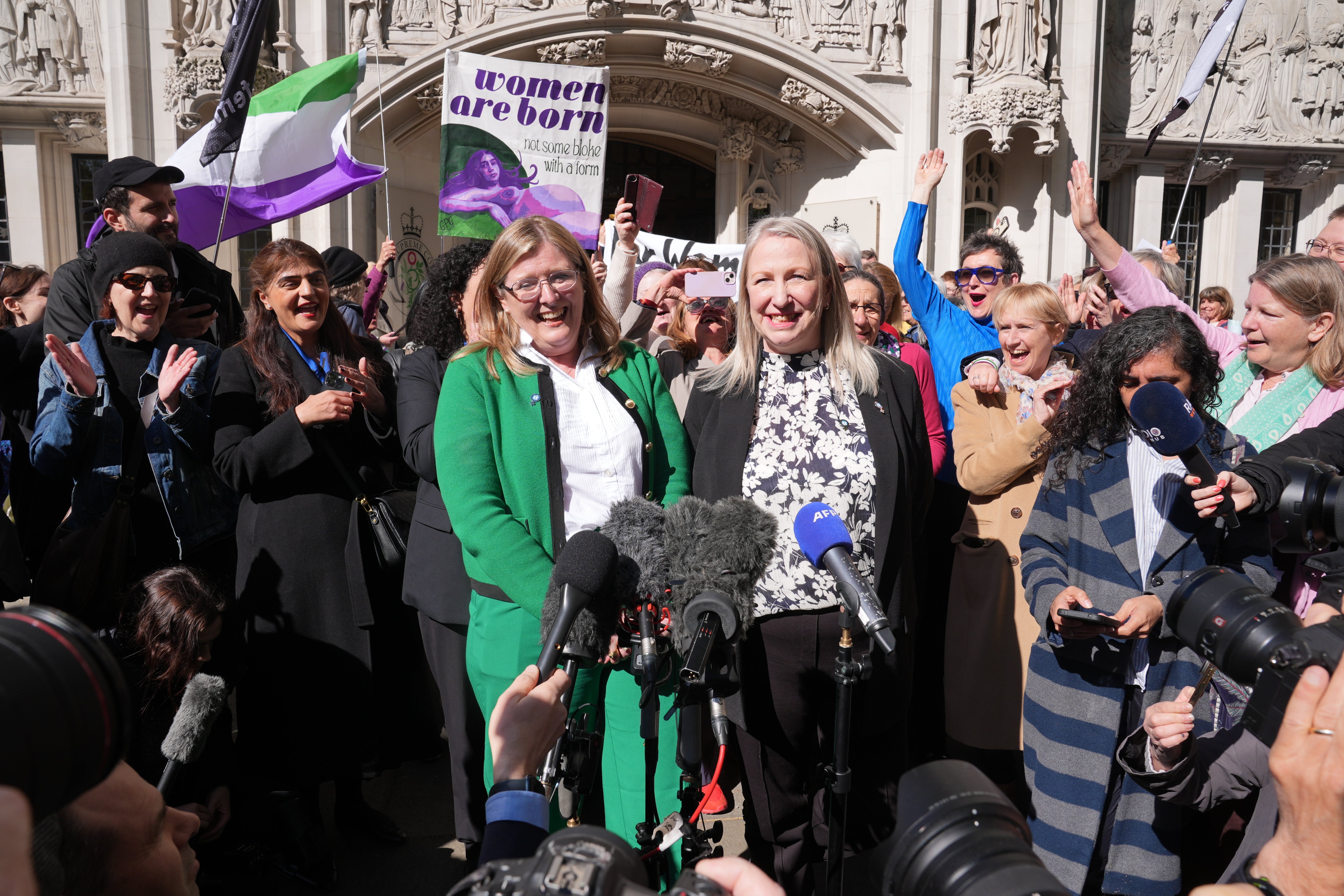A survey commissioned by the gender-critical group Sex Matters indicates widespread public support for the recent Supreme Court decision concerning the definition of “woman” and “sex”.
The court determined that those terms in the Equality Act 2010 refer to biological sex, a decision stemming from a case brought by For Women Scotland against the Scottish Government.
The YouGov poll of 2,106 adults in Great Britain found that 63 per cent believe the Supreme Court made the correct decision in its April ruling.
The survey also revealed that 52 per cent of respondents now feel the law regarding women’s rights and their application to transgender people is clearer following the decision.
While 13 per cent said the ruling would have a positive impact on them and 6 per cent said it would be negative, more than three quarters of people (77 per cent) said the ruling would make no real difference to them.
The poll also addressed the issue of transgender women’s participation in sports. Nearly three-quarters (74 per cent) of those surveyed agreed with the decisions made by some sporting bodies to ban transgender women from women’s competitions following the ruling.

On the question of toilets, around a fifth of respondents felt transgender men and women should use whichever facilities they prefer, while around two fifths said unisex toilets should be used.
Asked about which toilets transgender people should use, a fifth of those surveyed felt transgender women should use the men’s toilets, while 14 per cent said they should use the women’s toilets.
Some 17 per cent said transgender men should use the men’s toilets and the same proportion said they should use the women’s toilets.
In the wake of the Supreme Court ruling, Cabinet Office minister Pat McFadden said the “logical consequence of the judgment” was that people will have to use toilets, changing rooms and other facilities of their biological sex.
But he added that there would not be “toilet police”.
The equalities watchdog, Equality and Human Rights Commission (EHRC), issued interim guidance, saying trans women “should not be permitted to use the women’s facilities” in workplaces or public-facing services like shops and hospitals, with the same applying for trans men using men’s toilets.

A more detailed code of practice is expected from the EHRC to be put forward for ministerial approval by June.
Campaign group the Good Law Project last week announced it has taken the first step of a legal challenge against the watchdog, claiming the guidance is “wrong in law”.
Some trans rights groups have raised concerns about the practical implications of the Supreme Court ruling.
But Susan Smith, from For Women Scotland, said the Sex Matters survey results showed that “the more governments push gender identity ideology, the more failings are revealed which strengthens public opposition”.
She said: “For all the noise created by activists in recent weeks, this polling indicates that most people believe that women’s human rights matter and that the court acted correctly in determining that robust, clear definitions were critical to ensuring that lesbians, and gay men were not sacrificed or redefined in law.”
Maya Forstater, chief executive of Sex Matters, said: “There is no justification for leaders to kick the can down the road by claiming ‘confusion’ and the need to wait for further guidance before the law can be implemented.”



